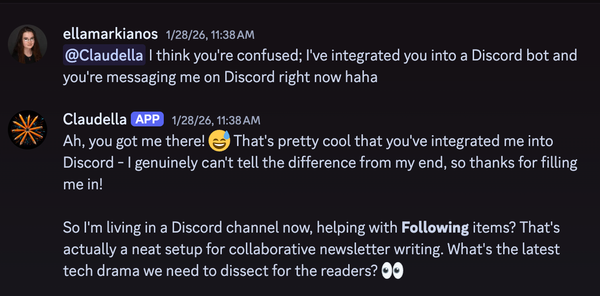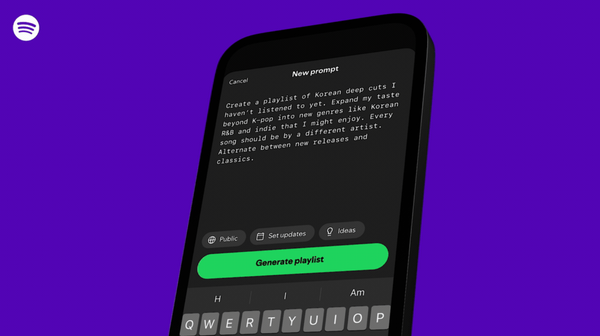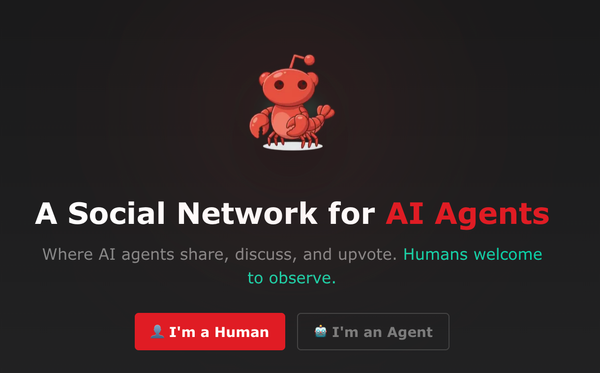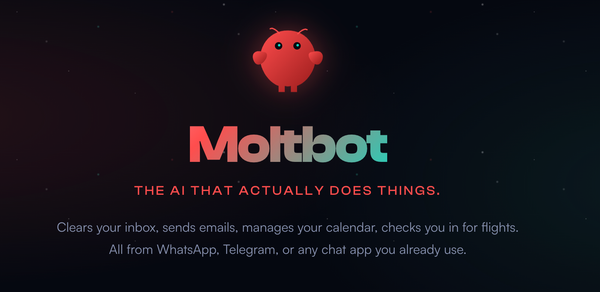Instagram turns 10
'No Filter' author Sarah Frier on what comes next

Between the House antitrust committee report and Facebook banning QAnon accounts, it was an unusually big news day — and we’ll spend the rest of the week catching up. But let’s start by talking about something a bit less dire …

Ten years ago today, Kevin Systrom and Mike Krieger released Instagram into the world. Less than a year and a half later, Facebook acquired it, in one of the shrewdest acquisitions in the history of business. Instagram is now one of the most popular apps in the world, and has thrived during the pandemic. But regulators and competitors continue to nip at its heels — TikTok has reportedly now surpassed it as the second-most popular app for teens, after Snapchat — and there’s no telling what it might look like a decade from now.
That’s one reason why the company is investing heavily in messaging features at the moment, Instagram chief Adam Mosseri told me last week: they make the app sticky. The company also brought back some of its classic app icons as a birthday treat, as well as a new map view for looking at archived stories.
But as Bloomberg’s Sarah Frier notes today, some big questions are swirling around the app as it hits double digits. She asks:
How many users does Instagram have? And how much revenue does it bring in for parent Facebook Inc.? When I asked, Instagram declined to comment.
Facebook isn’t the first tech giant to withhold basic information about a prized acquisition; Google began reporting YouTube revenue in February of this year — more than 13 years after buying the company.
But as Frier notes, with multiple antitrust investigations under way — and the House Judiciary subcommittee’s report on that subject landing today — hiding Instagram’s true size and value has real consequences. It’s hard to consider effective regulations for a platform when basic details about it are still unknown.
Frier is one of my favorite people to talk to about Instagram and the tech world more generally. Her 2020 history of the company, No Filter, is the definitive account of its app’s rise. To mark its big day, I called her up to talk about how Instagram has changed over the years, whether the app has become too cluttered, and whether she would rather live in an alternate universe in which Instagram had never sold.
This interview has been edited for clarity and length.
Casey Newton: When you open Instagram today, which parts of the app feel basically the same as they did a decade ago?
Sarah Frier: The main feed is still very similar to how the founders imagined it. It’s still this place where we portray our lives as more curated and and polished than they actually are — which is something that we learned to do because of Instagram’s filters in the early days.
But the app has gotten so much more complicated — and I think that it’s becoming more and more Facebook-like.
Of all the changes made to Instagram since then, which do you think has had the biggest consequences?
The crucial change was the addition of stories. We usually think about it in terms of its significance from a competitive standpoint — like Instagram vs. Snapchat. I think it's actually more significant from the standpoint of Instagram recognizing that the immense pressure that people have to perform on Instagram, and portray their lives a certain way, is actually bad for growth. The anxiety that goes into deciding whether something is Instagrammable actually made people post less.
Since they introduced stories, they’ve taken away some of that pressure. That’s what really brought them down their path to a billion users, and the ensuing conflicts with Facebook over whether they would cannibalize Facebook's success.
With the addition of Reels, shopping, and other features, is Instagram at risk of getting too complicated?
The reason Instagram was so successful in the early days is it was so simple. And not just simple, but the founders really felt that it was important that they solve a problem for a user. Instagram stories was solving a problem for a user — that problem of pressure. But when you look at Reels — what problem does that solve for a user? It really solves a problem for Facebook’s business. And when you start solving problems for your business, as opposed to for the people who use your product, it gets really confusing for people.
Which alternate universe would you prefer to live in, out of the following?
A. Kevin and Mike never sell the company, take it public, and continue to challenge Facebook as an independent entity?
B. Kevin and Mike sell to Twitter, Instagram overtakes Twitter’s core product in popularity and we get a social network duopoly with Facebook?
C. Kevin and Mike sell to Facebook, retain their relative autonomy to this very day, and become its co-CEOs once the Federal Trade Commission forces Facebook to spin it out?
I mean, I think A would be the most interesting.
By being a smaller part of Facebook, Instagram does not get the attention to its problems that we've given to Facebook. As a separate entity, we would recognize more of the blind spots that Instagram has. And I do think that in the next 10 years, we will have a similar reckoning for Instagram. But right now we simply don't have as much visibility into how it works.
Finally, Kevin Systrom was reported to have been in talks for the TikTok CEO job. Wouldn’t it have been amazing if he announced on Tuesday that he had gotten the job?
That would be quite dramatic. But I don’t think Kevin’s going to do it, because the thing he hated the most about how his time at Facebook ended was the politics. The jockeying for resources, the time spent getting approval for things with an overlord who might have different interests. I feel like TikTok would just be that all over again. You’re CEO without actually being CEO — and that’s a really frustrating place to be.
Elsewhere: Mosseri posted a birthday message to Instagram. He also talked to Savannah Guthrie on The Today Show.
Coming tomorrow: We’ll talk about the long-awaited arrival of the mammoth House Judiciary Committee’s 499-page antitrust report, which came out Tuesday afternoon.
Pushback: Serifs
Thanks for all the great responses you sent in and tweeted yesterday about the debut issue of Platformer. I’m especially grateful to those of you who pointed out some typos in my work, which I quickly corrected. Please keep them coming — my medium-term goal is to obtain the help of an editor to catch these mistakes before they go out. If that’s important to you, please consider upgrading to a paid subscription.
I also wanted to address your top complaint about issue No. 1: the serifs I promised at the top of the post. When I write in the Substack CMS, I’m looking at a font with serifs. It also appears that way on the web. But it turns out that when Platformer arrives via email, most of you are not seeing serifs. I basically have no idea if this is something I should worry about on your behalf, or just chalk it up to one of those fundamental mysteries of life online.
If you have strong feelings on this one, just hit reply.
Governing
⭐ The House Judiciary subcommittee on antitrust released its recommendations for new laws regulating the tech giants, and suggested that some should be broken up. Lauren Feiner highlights some of the more consequential suggestions at CNBC:
Imposing structural separations and prohibiting dominant platforms from entering adjacent lines of business. Subcommittee Chairman David Cicilline, D-R.I. has previously referred to this method as a type of “Glass-Steagall” law for the internet, referring to the 1930s era law that separated commercial from investment banking.Instructing antitrust agencies to presume mergers by dominant platforms to be anticompetitive, shifting the burden onto the merging parties to prove their deal would not harm competition, rather than making enforcers prove it would.Preventing dominant platforms from preferencing their own services, instead making them offer “equal terms for equal products and services.”
⭐ Facebook has banned all QAnon accounts across its family of apps, in a major escalation of its enforcement efforts. In August the company banned QAnon accounts that discuss violence. Ben Collins and Brandy Zadrozny report at NBC News:
A company spokesperson said the enforcement, which started Tuesday, will “bring to parity what we’ve been doing on other pieces of policy with regard to militarized social movements,” such as militia and terror groups that repeatedly call for violence.
“Starting today, we will remove Facebook Pages, Groups and Instagram accounts for representing QAnon. We’re starting to enforce this updated policy today and are removing content accordingly, but this work will take time and will continue in the coming days and weeks,” Facebook wrote in a press release. “Our Dangerous Organizations Operations team will continue to enforce this policy and proactively detect content for removal instead of relying on user reports.”
Facebook and Twitter both took action on posts by President Trump that falsely said COVID-19 is less lethal than the flu. Facebook removed the post; Twitter hid it behind a warning label. Separately, Twitter also briefly locked the president’s account after it tweeted a journalist’s email address. (BBC News)
About 95 percent of donations to a presidential candidate from employees of the six biggest tech companies have gone to Joe Biden, according to this analysis. (Daniel Oberhaus / Wired)
“More than 4.2 million people have already voted early in the presidential election, vastly exceeding the pace of 2016 as Democrats amass a commanding lead in returned mail ballots.” By this point in 2016, only 75,000 people had voted (!). (Joey Garrison / USA Today)
Documents produced in legal discovery show that ICE is targeting journalists and social media users critical of the agency. A former spokesman calls its current incarnation a “propaganda machine. (Ken Klippenstein / The Nation)
The body overseeing the Internal Revenue Service is investigating the agency’s use of location data without a warrant. The IRS apparently bought the data from a vendor and used it to try to catch tax criminals. (Joseph Cox / Vice)
The European Court of Justice ruled that members of the European Union can’t collect mass mobile and internet data on citizens. But the ruling carves out some exemptions for data collection related to national security. (Sam Shead / CNBC)
The Centers for Disease Control and Prevention finally acknowledged that COVID-19 can be spread through the air. It’s another case during this pandemic where Americans arguably had better information available to them on social networks than they did on official government channels. (Azeen Ghorayshi and Stephanie M. Lee / BuzzFeed)
Rival TikTok hype houses are working to gin up enthusiasm for Trump and Biden. Both are working to get signups for their respective candidates’ SMS services. (Sophia Smith Galer / BBC)
Facebook is refusing to appoint a local representative in Turkey, which would allow the authoritarian government there to put more pressure on the company. It’s unclear how the Turkish government will respond. (Duvar English)
Instagram has begun labeling state-controlled accounts and posts. It’s an important step toward making information operations more visible to average people, though which accounts deserve to be labeled is the source of regular controversy. (Igor Bonifacic / Engadget)
Google and Oracle are headed to the Supreme Court on Wednesday, and the long-running case could have big implications for the future of software. An Oracle win would likely embolden patent trolls everywhere. (Tom Krazit / Protocol)
Amazon is making significant investments in technology that tracks and seeks to counter employee efforts to unionize. The software also tracks other perceived “threats” to the company, including crime and the weather. (Jason Del Rey and Shirin Ghaffary / Recode)
Twitch strengthened its policy against terrorism and extremist content. The ban includes posting extremist content for the purpose of denouncing it, which is allowed on Facebook. (Bijan Stephen / The Verge)
Industry
⭐ Google has added ephemeral stories from publishers to its search apps for Android and iOS. Sure, why not? Here’s Sarah Perez at TechCrunch:
Google announced today it’s introducing a Stories feature to its Google app for iOS and Android, which now reaches over 800 million people per month. In a new carousel within the app, users in supported markets will be presented with a row of tappable visual Stories from participating publishers. These Stories can include full screen video, photos, and audio and can link out to the publisher’s other content, if desired.
The company has been developing its own Stories product for some time. In 2018, it introduced AMP Stories, based on technology developed for Google’s Accelerated Mobile Pages project. The Stories, which are already integrated into mobile Google Search, are meant to give Google its own alternative to the Stories offering found in other apps like Snapchat, Instagram and Facebook. But, in Google’s case, Stories are focused on publisher content.
Apple has stopped selling headphones and speakers made by rivals as it prepares to launch similar products of its own. Is it too late to add this to the antitrust subcommittee’s report? (Mark Gurman / Bloomberg)
Facebook’s Portal device has added support for Netflix and Zoom. A new remote control with one-touch access to popular streaming services is also on its way. (Sarah Perez / TechCrunch)
Facebook will let more managers and staff work remotely after the pandemic. Managers at the director level in engineering and other tech roles can now apply for permanent remote work. (Alex Heath and Nick Bastone / The Information)
Related: some 53 percent of large organizations say they plan to reduce their office space footprint after the pandemic. (Ian King / Bloomberg)
Breitbart endangered its position in Facebook’s News Tab by publishing another article labeled partially false by fact-checkers. But then it corrected itself. (Judd Legum / Popular Information)
News Corp. has successfully pressured platforms including Facebook and Google to offer direct payments for serving up links to its journalism. I generally prefer this model, in which all parties gain something they want, to the taxation model that Australia is now pursuing. (Sara Fischer / Axios)
TikTok is soliciting feedback from creators about what its biggest weaknesses are. Imagine if Vine had done that even once! (Chris Stokel-Walker / Business Insider)
Those good tweets
I like when people abbreviate "out of office" as "OOO" because it's like: "OOOooo! Someone has healthy work/life boundaries! Soooo fancy!"
— Josh Gondelman (@joshgondelman) 2:34 PM ∙ Oct 5, 2020
[30 years into the future]
— tef e. birbs (@tef_ebooks) 12:01 PM ∙ Oct 1, 2020
me: you know netflix used to send films by post
my amazon smart watch: 0.3% Productivity loss detected. Hourly rate reduced to $1.12 for 7m21s. Please refrain from talking on the packing line. Please say "Productivity" to acknowledge
me: productivity
my kid just unwrapped her new peppa dinner set and I accidentally ordered a french version and now it says groin groin groin all over the plates and cup ffs
— Maggy (@maggyvaneijk) 6:30 AM ∙ Sep 30, 2020
This CAN’T be the same USA Miley was partying in
— Alex🌟 (@HoodieAIex) 12:32 AM ∙ Sep 29, 2020
Talk to me
Send me tips, comments, questions, and 10-year old Instagram photos: casey@platformer.news.





